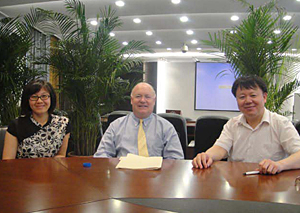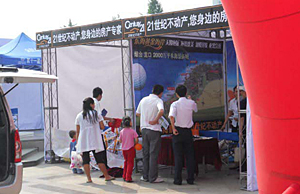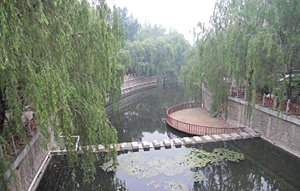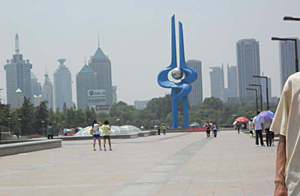

ADVERTISEMENT
- Rozovsky wins prestigious NSF Early Career Award
- UD students meet alumni, experience 'closing bell' at NYSE
- Newark Police seek assistance in identifying suspects in robbery
- Rivlin says bipartisan budget action, stronger budget rules key to reversing debt
- Stink bugs shouldn't pose problem until late summer
- Gao to honor Placido Domingo in Washington performance
- Adopt-A-Highway project keeps Lewes road clean
- WVUD's Radiothon fundraiser runs April 1-10
- W.D. Snodgrass Symposium to honor Pulitzer winner
- New guide helps cancer patients manage symptoms
- UD in the News, March 25, 2011
- For the Record, March 25, 2011
- Public opinion expert discusses world views of U.S. in Global Agenda series
- Congressional delegation, dean laud Center for Community Research and Service program
- Center for Political Communication sets symposium on politics, entertainment
- Students work to raise funds, awareness of domestic violence
- Equestrian team wins regional championship in Western riding
- Markell, Harker stress importance of agriculture to Delaware's economy
- Carol A. Ammon MBA Case Competition winners announced
- Prof presents blood-clotting studies at Gordon Research Conference
- Sexual Assault Awareness Month events, programs announced
- Stay connected with Sea Grant, CEOE e-newsletter
- A message to UD regarding the tragedy in Japan
- More News >>
- March 31-May 14: REP stages Neil Simon's 'The Good Doctor'
- April 2: Newark plans annual 'wine and dine'
- April 5: Expert perspective on U.S. health care
- April 5: Comedian Ace Guillen to visit Scrounge
- April 6, May 4: School of Nursing sponsors research lecture series
- April 6-May 4: Confucius Institute presents Chinese Film Series on Wednesdays
- April 6: IPCC's Pachauri to discuss sustainable development in DENIN Dialogue Series
- April 7: 'WVUDstock' radiothon concert announced
- April 8: English Language Institute presents 'Arts in Translation'
- April 9: Green and Healthy Living Expo planned at The Bob
- April 9: Center for Political Communication to host Onion editor
- April 10: Alumni Easter Egg-stravaganza planned
- April 11: CDS session to focus on visual assistive technologies
- April 12: T.J. Stiles to speak at UDLA annual dinner
- April 15, 16: Annual UD push lawnmower tune-up scheduled
- April 15, 16: Master Players series presents iMusic 4, China Magpie
- April 15, 16: Delaware Symphony, UD chorus to perform Mahler work
- April 18: Former NFL Coach Bill Cowher featured in UD Speaks
- April 21-24: Sesame Street Live brings Elmo and friends to The Bob
- April 30: Save the date for Ag Day 2011 at UD
- April 30: Symposium to consider 'Frontiers at the Chemistry-Biology Interface'
- April 30-May 1: Relay for Life set at Delaware Field House
- May 4: Delaware Membrane Protein Symposium announced
- May 5: Northwestern University's Leon Keer to deliver Kerr lecture
- May 7: Women's volleyball team to host second annual Spring Fling
- Through May 3: SPPA announces speakers for 10th annual lecture series
- Through May 4: Global Agenda sees U.S. through others' eyes; World Bank president to speak
- Through May 4: 'Research on Race, Ethnicity, Culture' topic of series
- Through May 9: Black American Studies announces lecture series
- Through May 11: 'Challenges in Jewish Culture' lecture series announced
- Through May 11: Area Studies research featured in speaker series
- Through June 5: 'Andy Warhol: Behind the Camera' on view in Old College Gallery
- Through July 15: 'Bodyscapes' on view at Mechanical Hall Gallery
- More What's Happening >>
- UD calendar >>
- Middle States evaluation team on campus April 5
- Phipps named HR Liaison of the Quarter
- Senior wins iPad for participating in assessment study
- April 19: Procurement Services schedules information sessions
- UD Bookstore announces spring break hours
- HealthyU Wellness Program encourages employees to 'Step into Spring'
- April 8-29: Faculty roundtable series considers student engagement
- GRE is changing; learn more at April 15 info session
- April 30: UD Evening with Blue Rocks set for employees
- Morris Library to be open 24/7 during final exams
- More Campus FYI >>
8:52 a.m., June 28, 2010----Burt Abrams, professor of economics in the University of Delaware's Alfred Lerner College of Business and Economics, recently returned from a visiting professorship at Shandong Economic University in Shandong, China.
During May and June, Abrams taught a first-year graduate student economics course at Shandong Economic University in banking, macroeconomics and the current U.S. financial crisis. The tailor-made course drew heavily on Abrams' research and expanded on existing economics literature and policies.
Abrams was also a guest lecturer at Beijing Institute of Technology during his stay, where he spoke further about the current U.S. financial crisis and the response of the Federal Reserve.
Abrams first visited China over 25 years ago as a Fulbright professor at Nankai University in Tianjin, China, and his interests in research and teaching abroad grew from there.
“This was actually my fifth visit to China and to compare 25 years ago to today is truly astonishing,” said Abrams. “The improvements in living standards for faculty and university life in general are impressive.”
Abrams also noticed substantial growth at the university.
“Shandong Economic University has been growing rapidly and has over 20,000 students today,” he said. “There is also a proposed merger with another university in the city, which would make them even larger.”
Jinan, the provincial capital of Shandong, is a city of about two million people whose primary economic activity is light industry.
The opportunity to teach at Shandong Economic University came to Abrams through a mutually beneficial relationship formed during his first visit to Nankai years ago.
“Jizu Wang, who received his doctorate from the University of Illinois in the 1940s, returned to China and was caught up in its turmoil for the next four decades,” said Abrams. “He visited UD several times in more recent years, and two years ago received an honorary award of appreciation from the Lerner College for teaching at and friendship towards UD.
“Wang hosted us to a Winter Session program two decades ago and has since recommended Chinese faculty who have studied with him to be visiting scholars at UD. He is a great academic contact.”
Abrams, who holds both a master's degree and a doctorate from Ohio State University, joined the UD faculty in 1974. His teaching and research interests include monetary economics, macroeconomics and public choice.
Through his research, Abrams has explored the determinants of economic growth and factors that affect long-term unemployment rates. He has also examined issues related to monetary policy under the Nixon administration using the Nixon tapes as source material.
Article by Kathryn A. Marrone




